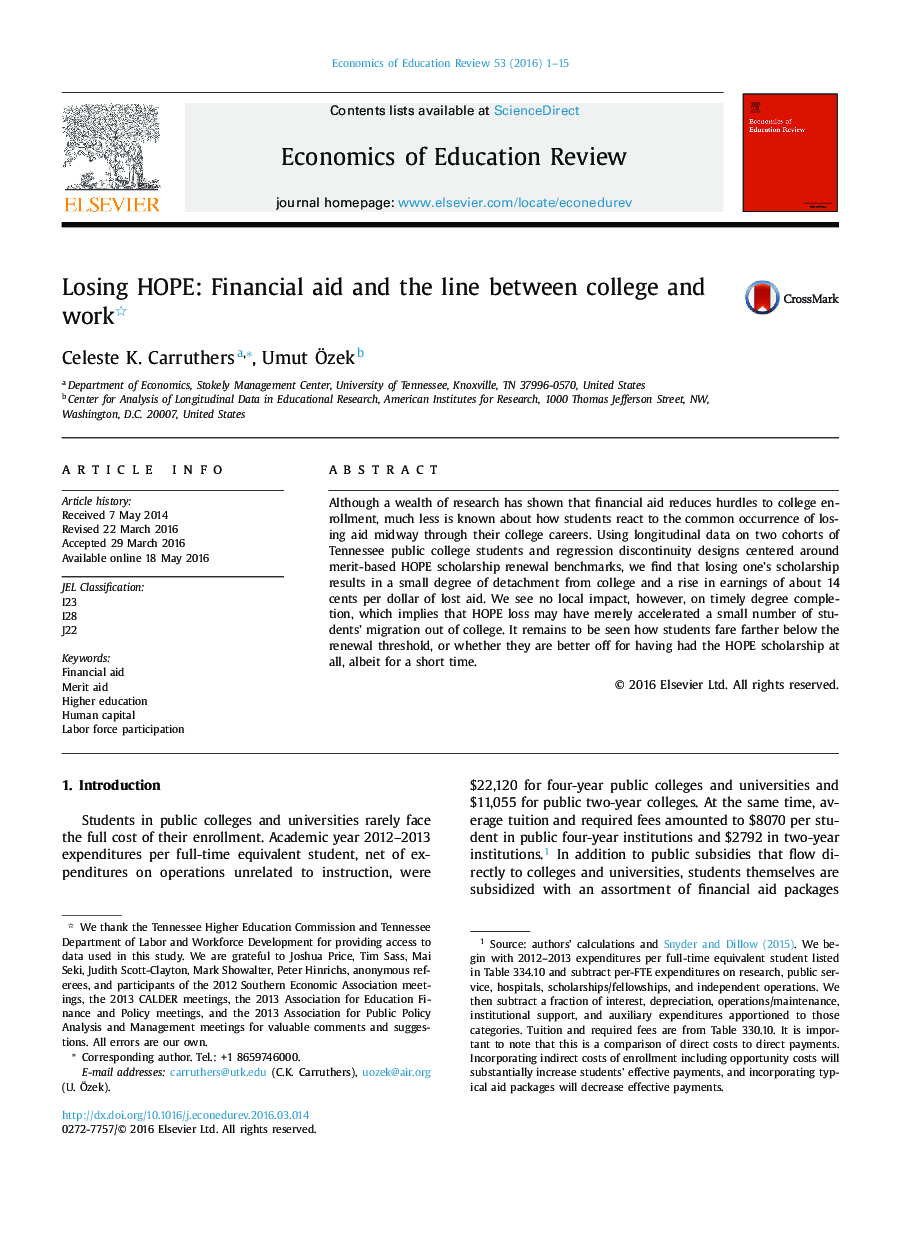| Article ID | Journal | Published Year | Pages | File Type |
|---|---|---|---|---|
| 354268 | Economics of Education Review | 2016 | 15 Pages |
•We examine the effect of the loss of merit aid on college student outcomes.•Regression discontinuity analysis focuses on the first renewal threshold.•Results point to a small degree of detachment from college but no effect on timely completion.•Students work more after losing merit aid, replacing 14 cents of every scholarship dollar.
Although a wealth of research has shown that financial aid reduces hurdles to college enrollment, much less is known about how students react to the common occurrence of losing aid midway through their college careers. Using longitudinal data on two cohorts of Tennessee public college students and regression discontinuity designs centered around merit-based HOPE scholarship renewal benchmarks, we find that losing one’s scholarship results in a small degree of detachment from college and a rise in earnings of about 14 cents per dollar of lost aid. We see no local impact, however, on timely degree completion, which implies that HOPE loss may have merely accelerated a small number of students’ migration out of college. It remains to be seen how students fare farther below the renewal threshold, or whether they are better off for having had the HOPE scholarship at all, albeit for a short time.
